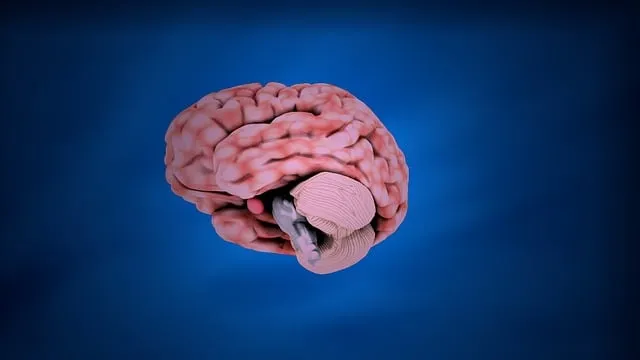Mental health professionals face significant challenges, including burnout and ethical dilemmas, requiring high emotional intelligence and specialized education. Westminster Kaiser offers a unique risk assessment method through comprehensive mental health classes that integrate Compassion Cultivation Practices. Their program equips students with stress management skills, fosters awareness, and provides a safe learning environment. Key components include mood management strategies, mental wellness journaling, and self-awareness exercises for proactive risk assessment, coping mechanism teaching, and client progress tracking. These evidence-based techniques, combined with support resources like Social Skills Training and the Mental Wellness Podcast Series, empower professionals to navigate complex situations effectively and enhance their resilience.
Mental health professionals face unique risks in their practice, from high-stakes decision-making to intense client relationships. Understanding these risks is paramount for ensuring well-being and effective care. This article explores strategies for navigating these challenges, drawing insights from Westminster Kaiser’s comprehensive mental health class risk assessment model. We’ll delve into essential components of risk management plans, providing practical strategies for mitigating potential hazards and responding effectively when they arise. Explore these key aspects to enhance your practice and foster healthier, more resilient clinical environments, supported by the expertise of Westminster Kaiser mental health classes.
- Understanding the Unique Risks in Mental Health Practice
- Westminster Kaiser's Approach to Mental Health Class Risk Assessment
- Essential Components of a Comprehensive Risk Management Plan
- Strategies for Mitigating and Responding to Potential Hazards
Understanding the Unique Risks in Mental Health Practice

Mental health professionals often find themselves navigating complex and sensitive situations on a daily basis, which can lead to unique risks and challenges. Unlike other fields, mental health practice involves dealing with deeply personal and intimate issues that significantly impact individuals’ lives. This includes managing highly emotional cases where clients may experience trauma, depression, or severe anxiety. Professionals must be adept at handling these delicate matters while maintaining confidentiality and ethical standards.
Moreover, the nature of this work can take a toll on the mental well-being of practitioners themselves. High-stress levels, heavy caseloads, and exposure to traumatic stories over time can contribute to burnout and stress-related disorders. Therefore, fostering self-awareness through exercises designed to enhance emotional intelligence is essential. Westminster Kaiser’s mental health classes, for instance, offer valuable resources for professionals seeking to develop resilience, improve self-Awareness Exercises, and engage in comprehensive Mental Health Education Programs Design tailored to their unique needs.
Westminster Kaiser's Approach to Mental Health Class Risk Assessment

Westminster Kaiser, a leader in mental health education, offers a comprehensive approach to risk assessment tailored for professionals in this field. Their methodology emphasizes the importance of a holistic evaluation, considering not just individual risks but also the broader context and unique challenges faced by each student. This involves a multi-faceted assessment that delves into personal history, current stressors, and potential triggers, ensuring a deep understanding of each learner’s mental health landscape.
By incorporating Compassion Cultivation Practices into their mental health classes, Westminster Kaiser equips students with effective stress management tools and enhances their mental health awareness. This approach not only minimizes risks within the educational setting but also empowers professionals to navigate complex situations with empathy and resilience. The program’s focus on these essential skills contributes to creating a safe and supportive learning environment for all Westminster Kaiser mental health class participants.
Essential Components of a Comprehensive Risk Management Plan

In developing a robust risk management plan, mental health professionals must integrate several essential components to ensure comprehensive coverage and mitigate potential risks effectively. One key element is implementing Mood Management strategies tailored to individual clients’ needs. This involves not only identifying triggers but also teaching clients coping mechanisms and resilience-building techniques to navigate emotional challenges.
Additionally, integrating Mental Wellness Journaling Exercise Guidance as part of therapy sessions can be invaluable. Journaling allows professionals to track client progress, identify emerging patterns, and provide targeted interventions. Encouraging self-reflection through journaling promotes Self-Awareness Exercises, empowering individuals to better understand their thoughts, feelings, and behaviors, thereby fostering personal growth and improved mental wellness. Westminster Kaiser’s mental health classes emphasize these strategies, equipping practitioners with the tools necessary for proactive risk assessment and management.
Strategies for Mitigating and Responding to Potential Hazards

Mental health professionals often find themselves at a unique intersection of intense emotional engagement and potentially volatile client situations. To ensure their safety and effectiveness, it’s crucial they implement robust strategies for mitigating and responding to potential hazards. Risk Management Planning for Mental Health Professionals, like those offered by Westminster Kaiser, is an invaluable tool. These classes equip practitioners with the knowledge and skills necessary to identify warning signs, anticipate risks, and de-escalate crises through evidence-based techniques.
Complementing in-depth training, Social Skills Training and Mental Wellness Podcast Series Production can offer ongoing support. The former helps professionals hone their interpersonal skills, crucial for navigating complex client dynamics safely. The latter provides a platform for sharing insights, best practices, and case studies related to risk assessment and management. By integrating these diverse components – from structured classes to continuous learning resources – mental health professionals can enhance their resilience and better serve clients in challenging situations.
Mental health professionals face unique risks in their practice, necessitating a comprehensive risk assessment and management strategy. As demonstrated by Westminster Kaiser’s innovative mental health class risk assessment, integrating these practices into training can equip professionals with the tools to navigate potential hazards effectively. By following an all-encompassing plan that includes detailed risk identification, proactive mitigation strategies, and clear response protocols, mental health practitioners can create a safer work environment. Adopting these measures not only protects professionals but also enhances patient care and ensures the resilience of the mental health field as a whole.






